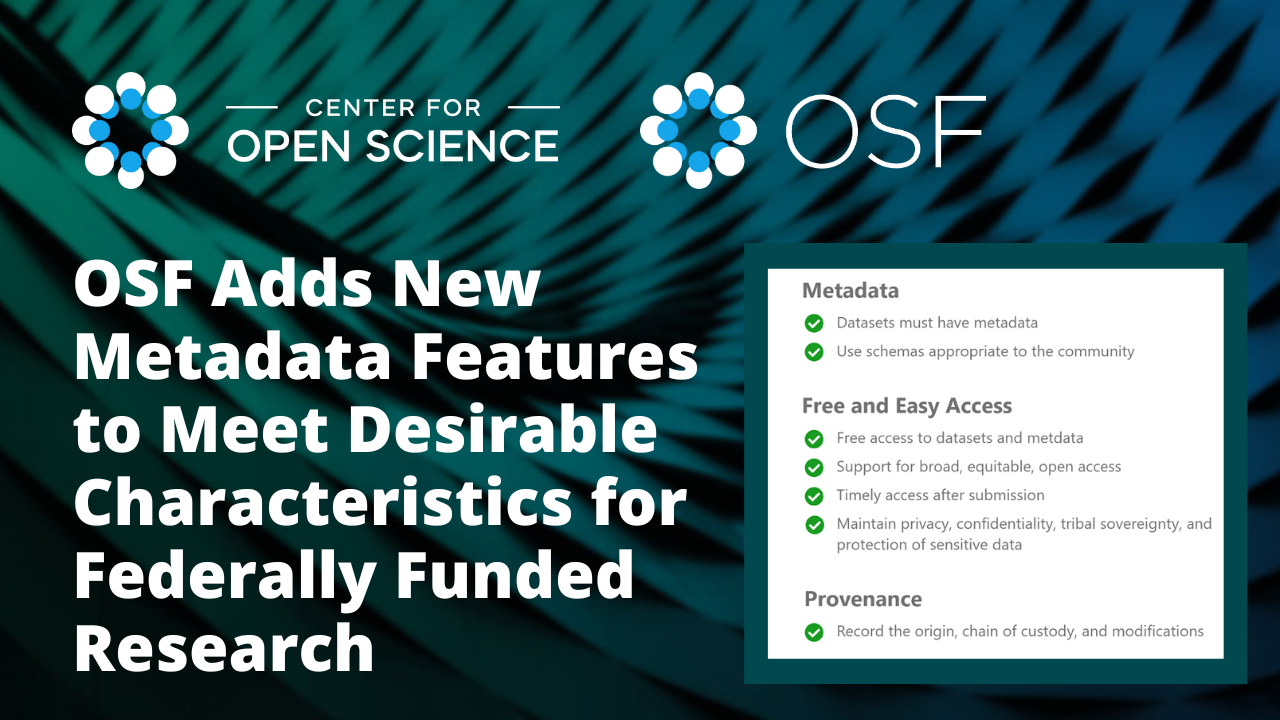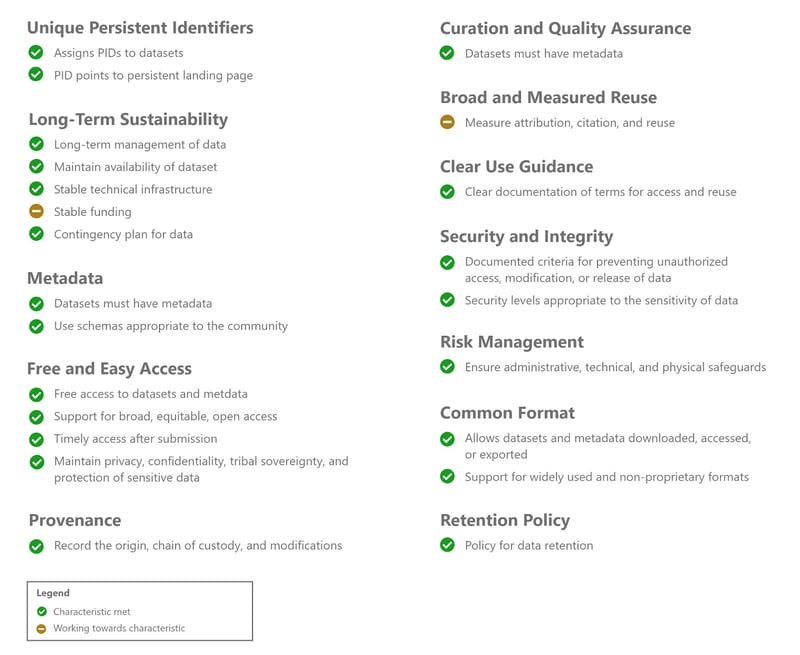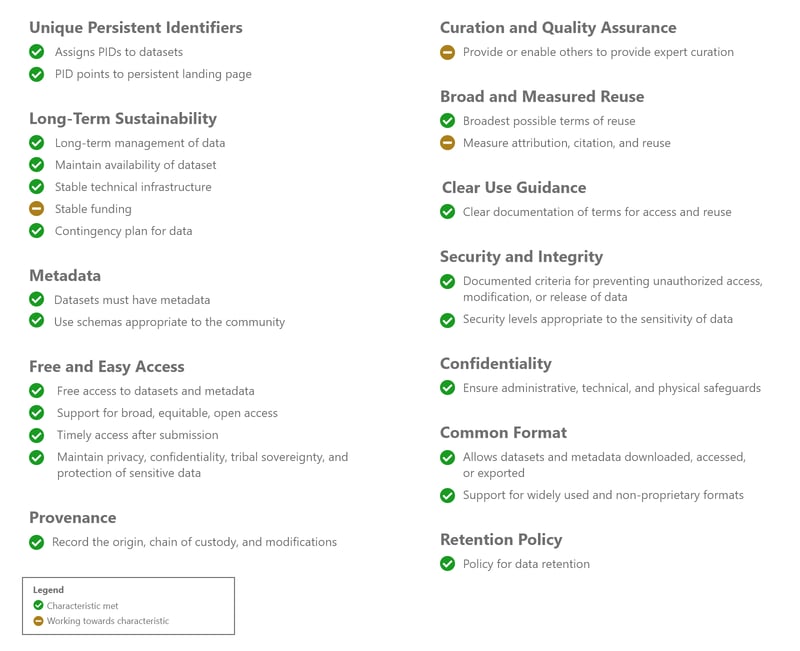
Last year we did a self-assessment of the OSF as part of the NIH’s Generalist Repositories Ecosystem Initiative (GREI), based on the desirable characteristics for data repositories as articulated by the NIH’s Supplemental Policy Information: Selecting a Repository for Data Resulting from NIH-Supported Research and the NSTC’s guidance on desirable characteristics for federally funded research:
The proposed guidelines, agreed to by U.S. federal agencies, support consistency across agencies and will eventually coordinate data storage and management of Federally funded research. The aligned-agency characteristics further commit to FAIR research, also enabling equity and security.
While OSF met most of those characteristics, there were a few we were still working on. We are glad to be able to report an update: the OSF now supports metadata for datasets and follows the DataCite Metadata Schema endorsed by the GREI repository community.
These new features add two additional characteristics to our list for NTSC in the Metadata category, plus one in the Curation and Quality Assurance category.

As well as two more characteristics in the Metadata category in the NIH’s list.

The new metadata features introduced in January bring OSF into alignment with more of the desirable characteristics, but we are not done with metadata yet. COS staff are working on improvements to the search interface for OSF that will enable better discovery based on this metadata. These features are being guided by community feedback OSF has received from users over the years as well as the NIH and NSTC guidance. To that end, new metadata development is already focusing on supporting even more community-developed schemas, a feature that has been heavily requested by OSF users as far back as 2016. That work will both answer specific suggestions of features and enhancements to the OSF, and will incorporate even more community-specific metadata schemas into OSF.
In the meantime, we are now releasing some of the underlying documentation behind our metadata improvements including the OSF Metadata Application Profile (OSF MAP) — a document outlining all of the standard metadata fields available for OSF objects and how they can be used. The OSF MAP is accompanied by an Introduction that describes how to understand and apply the MAP to OSF objects.
Creating the OSF MAP provides a set of guidelines for future development of metadata by creating a common core that can be built on. The work of developing the OSF MAP involved analyzing metadata across OSF to standardize it, but also aligning with other community metadata standards to make our data more interoperable. The most prominent of these standards is the DataCite Metadata Schema, as mentioned above. DataCite is an international organization that registers persistent identifiers, known as Digital Object Identifiers (DOIs), for research. The metadata standard they developed was selected to work across domains and to aid in citation and retrieval of material. It has been adopted as the standard model for metadata across the GREI repository group.
Since OSF data is so closely aligned with the DataCite model, metadata from OSF can be shared with DataCite when DOIs are created. Metadata for OSF materials with a DOI then show up in DataCite Commons and other web sites increasing their visibility. If other PIDs are used, such as ORCID identifiers, Crossref funders, or ROR IDs (for OSF Institutions members), the spread of that data can go even further.
This is not the end of improvements to the OSF that will bring us closer to all of these desirable characteristics. In fact, we are currently working on new features to incorporate even more community-based metadata schemas. More on that to come!
You can get started improving the quality of your own research right now by adding more metadata to your OSF Projects, Registrations, and Files. Check out our Help Guides that can walk you through the process to get started.

210 Ridge McIntire Road
Suite 500
Charlottesville, VA 22903-5083
Email: contact@cos.io

Unless otherwise noted, this site is licensed under a Creative Commons Attribution 4.0 International (CC BY 4.0) License.
Responsible stewards of your support
COS has earned top recognition from Charity Navigator and Candid (formerly GuideStar) for our financial transparency and accountability to our mission. COS and the OSF were also awarded SOC2 accreditation in 2023 after an independent assessment of our security and procedures by the American Institute of CPAs (AICPA).
We invite all of our sponsors, partners, and members of the community to learn more about how our organization operates, our impact, our financial performance, and our nonprofit status.